2025 Vineyard USA
Annual Report
Subtítulos de vídeo disponibles en español
As you scroll through, we hope you’ll be encouraged by the work the Lord has done in and through the Vineyard in 2024, a momentous year where we celebrated 50 years since Kenn Gulliksen started the first Vineyard church in a living room in Southern California. We are truly a diverse movement, both nationally and internationally, but we have common values, characteristics, and goals that unite us in pursuing the Kingdom of God on earth as it is in heaven.
This Annual Report is publicly available, so please feel free to share it with your staff, boards, friends, congregations… anyone you think would be interested! We are so grateful for the Lord’s goodness to us throughout the years, and we are filled with anticipation for what’s to come.
By the Numbers
Management Update
Subtítulos de vídeo disponibles en español
Financial Update
Subtítulos de vídeo disponibles en español
2024 Operating Expenses
Operating Income for 2024: $6,638,548
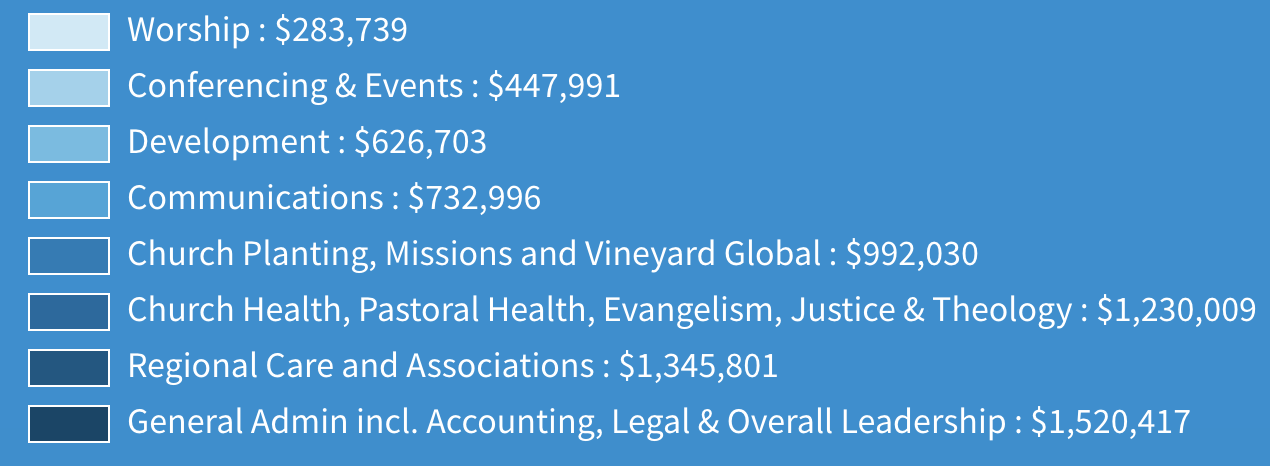
$471,138 withdrawal from strategic reserves
Development Update
Subtítulos de vídeo disponibles en español
Evangelism & Justice Update
Subtítulos de vídeo disponibles en español
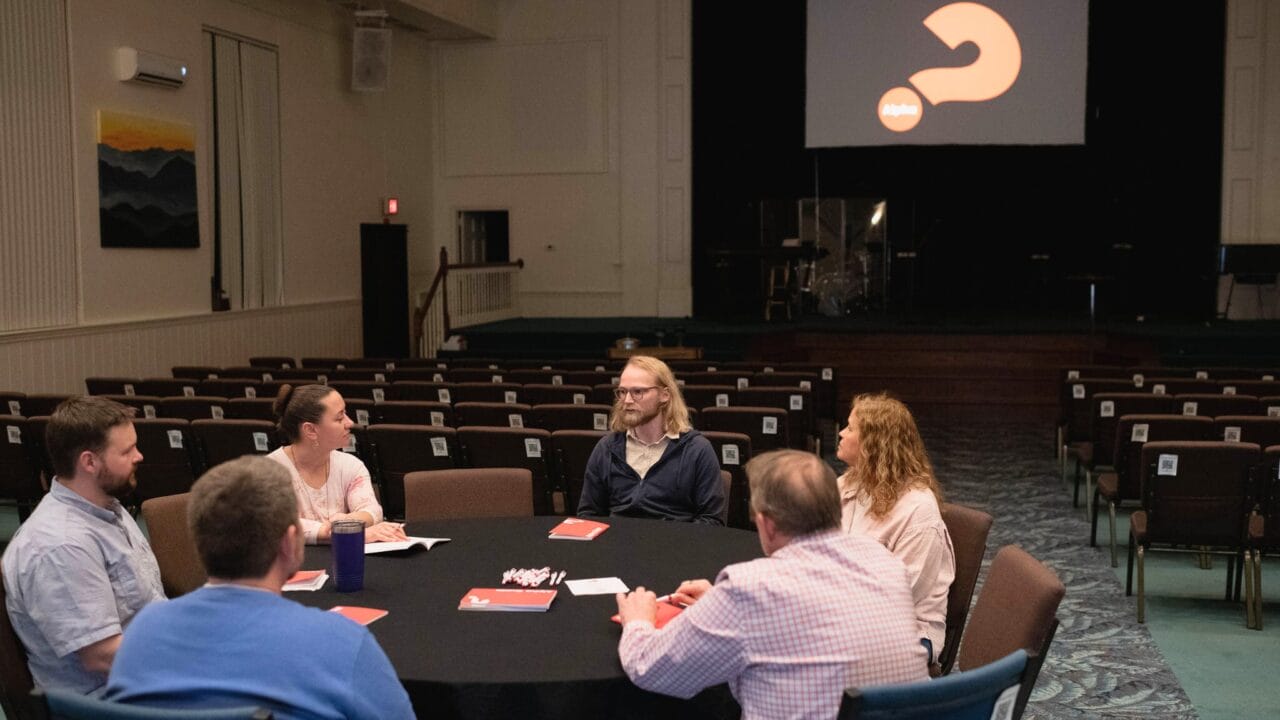
Learning to Play the Long Game with Alpha
When you start, it’s just your own people because they don’t trust it enough yet to invite anybody. You have to do it a few times before they’ll start inviting their friends.”
Derek Heilmann | Vineyard Altoona, PA
Learning to Play the Long Game with Alpha
Derek's Story
Vineyard Altoona
Derek Heilmann is the Lead Pastor of Vineyard Altoona in PA, which he planted in 2014 out of Vineyard Columbus with Jeri, his wife. They dreamed of starting a thriving church where people would meet Jesus and become disciples, but the spiritual landscape of Altoona was different from Columbus, OH. While Columbus had people from diverse faith backgrounds or no faith background at all, Altoona was steeped in cultural Christianity. Many people were familiar with Christian beliefs, but deep, vibrant discipleship was less common.
Determined to engage their community in a fresh way, Derek launched an Alpha course in 2018, inspired by the dynamic and large-scale approach he had seen at Vineyard Columbus. “In Columbus, Alpha was a big deal. They regularly had a couple hundred people attending, and it felt like a huge production,” he recalls. Eager to replicate that success, they assembled a 24-person team, purchased signs, and promoted it heavily. On the first night, the team arrived full of excitement, only to realize no one else had come. “We did a full course for our own people, and it was fine, but we stopped doing it after that. We just quit.”
In the Fall of 2022, while they were revamping after COVID, they decided to try Alpha again. Derek shared with a friend about their disappointing first experience running Alpha, who responded, “Well, that’s how it always goes. When you start, it’s just your own people because they don’t trust it enough yet to invite anybody. You have to do it a few times before they’ll start inviting their friends.”
They committed to a regular rhythm of Alpha, and early on, it was mainly their church attendees. In January 2023, Derek attended the Experience Alpha event in London with a group of Vineyard pastors and was reassured when he heard Nicky Gumbel (the founder of Alpha) say, “You have to run it at least nine times to see what you actually have.” Nicky said the first three to four courses are usually mostly church members. He confirmed Derek’s friend’s assertion that it takes a church member being around it and experiencing it a few times in order to feel comfortable enough to invite their friends, family, and coworkers to join them. That insight solidified their long-term strategy.
“We love Alpha because it’s just so Vineyard. Our church’s mission statement is ‘Lost people Found, Found people Formed, Formed people Sent,’ and Alpha takes care of the first part of that. We invite people to attend, and then we invite them back to help at a table, and then we invite them to lead a table. If someone makes a decision for Christ or wants to get involved in the church, there’s an easy path to small groups because they’re already used to that dynamic.”
Derek says he also loves how Alpha creates an avenue for discipleship and formation. “When we train people to lead tables, their job isn’t to provide answers, it’s to facilitate discussion. That means learning to manage their own anxiety, sitting with people’s questions, and resisting the urge to jump in with solutions, even when they think they have the perfect response. It builds character and develops leaders.”
Their current group is about 35 people and consists of a table of college students, a table of attorneys from a local law firm, and a table full of people who are all in some way connected to Derek’s mentee, who is preparing to take over leadership of the ministry. She grew up in a traditional denominational church where questioning faith was discouraged. “This is the kind of space I wanted and needed when I was growing up, but didn’t exist, so I want to help create it for others.”
Looking ahead, Vineyard Altoona dreams of growing Alpha to 50 attendees this year—more than half of their regular Sunday congregation. But for Derek, it’s not just about numbers. It’s about building a culture where people move from simply knowing about Jesus to becoming deeply transformed disciples, and where inviting others into the journey becomes second nature.
Vineyard Missions
Subtítulos de vídeo disponibles en español
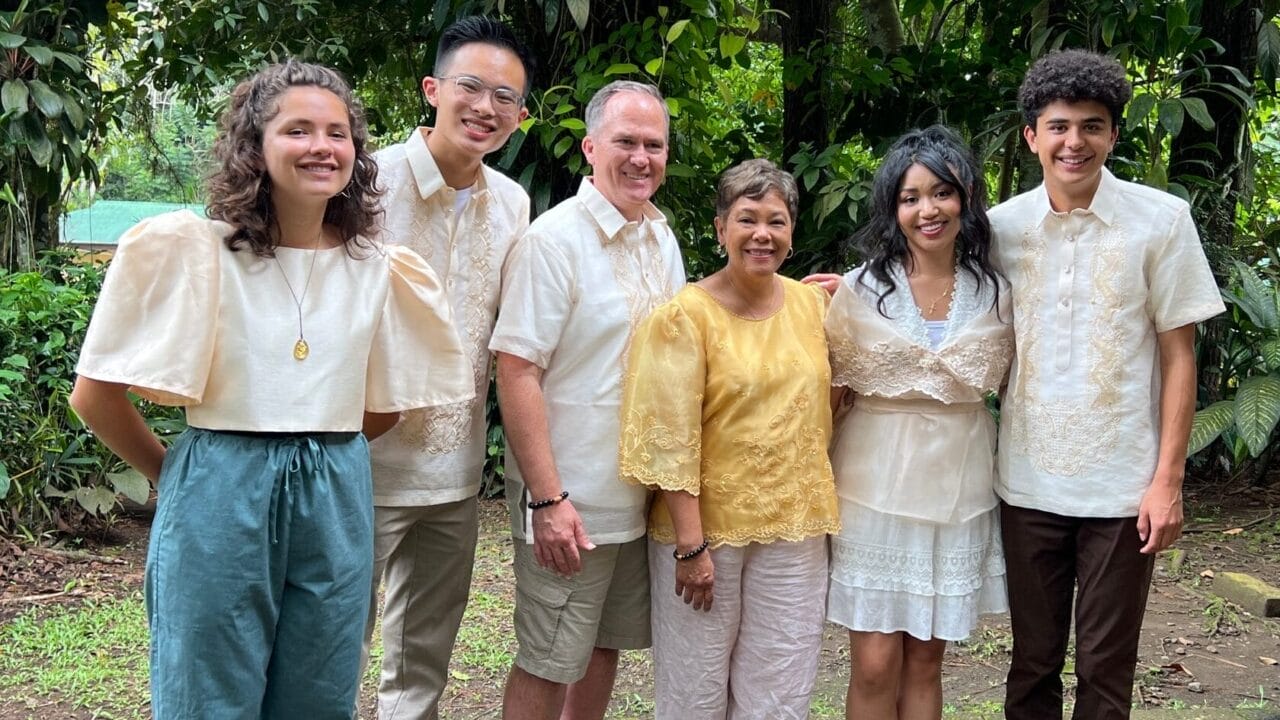
Called to Connection: How the Seattle Vineyard Found its Missions Home in the Philippines
It’s important that we see beyond our own culture because it opens our eyes to God’s heart for all nations. There’s something incredibly enriching about having people living in the U.S. experience life outside of the U.S. It’s a continuation and expansion of how God views people across the globe.”
Judith & John Hix | Seattle Vineyard, WA
Called to Connection: How the Seattle Vineyard Found its Missions Home in the Philippines
Judith and John's Story
Seattle Vineyard
When Judith and John Hix became the lead pastors at Seattle Vineyard over five years ago, they felt called to invest in a long-term overseas missions partnership. “The Seattle Vineyard has always valued international missions, and it was important to us to find a country that we could build relationship with.” They spent four years discerning which country to partner with, and after attending three Missions Leadership Meetings (MLM), asking God how they should be involved in missions, and connecting on calls with the Vineyard Missions Team, they decided to visit the Philippines.
“We are two blocks away from the University of Washington and have a large number of Asian students in our congregation, so it made sense to focus on an Asian country. We attended a large conference last year in Davao with four college students from our church, and it just clicked!” Judith says it was a really special trip for many reasons. “I was born in the Philippines but was raised in Hawaii, so I hadn’t been back in over 40 years. It was also the first time my husband joined me in the country, and he connected really well. He immediately said, ‘We’re coming back!’” Judith says it was beautiful to see the Vineyard expressed in Filipino culture, and the Seattle Vineyard officially registered with Vineyard Missions last year.
Judith shared that they visited two Vineyard churches on their trip, the Tancontian Vineyard in Metro Davao and the Baguio Vineyard on the island of Luzon. As Judith was born in Baguio, she was curious to see what the church was doing there, so the team took a five-hour bus ride to visit, and they witnessed a miraculous event. “They were going on an outreach to a very poor community called Agoo, which has a history of being a displaced people. They’ve struggled to survive, and the Baguio Vineyard brings them food and clothes, tangible things to care for people and share God’s love.” The Seattle Vineyard donated money to provide lunch for the outreach, but after expecting to feed eighty people, over 160 people showed up. “I have a picture of how much food we had, and I watched it being served because I was serving the one pot of rice. I don’t know how to explain the fact that we prepared enough food for 80 people, and more than twice that many were fed.” Judith says it felt like the Lord’s blessing on the day.
The Bagiuo Vineyard has planted a Vineyard in Agoo, naming it the Seaside Vineyard, and its dynamics are more subtle but feel no less miraculous. “Two groups of people who don’t normally have relationship are coming together for these outreaches, and the town’s officials are giving approval and honoring the Baguio Vineyard for helping this group of people. There are amazing things happening that are outside of our concept of what church planting looks like, and we want to be a part of that. There are over 7,000 islands and 63 Vineyard churches. It’s amazing how God is moving there.”
Judith and John are worship leaders, and their gifting has led to additional opportunities for investment and partnership. “While we were at the conference in Luzon, we were asked last-minute to do a breakout session on worship. We had no time to prepare, but we hosted a Q&A with about forty people, ages 17 to 70. This opened a door where we were invited to provide a training workshop about worship and Vineyard values, which we’re modeling after Vineyard Worship Essentials.” Judith says that while several Vineyard worship leaders have visited the island to provide training over the years, no one had been there in quite a while, and they were asked to step into that role. Judith and John will be hosting six online sessions, along with a two-day in-person worship conference in late Spring. They’re being very mindful of all the cultural dynamics. “This is an honor, and it came because we were there and had built trust. We understand that as we’re teaching Vineyard values, the expression of them will look different in the Philippines. The intimacy part of how we worship is complicated to teach culturally, but people are open to it if it’s taught in a way that is sensitive to the culture.” Judith explains that it’s important that they check in with leaders to ensure they are supporting attendees in a way that strengthens their relationship with God and their growth as leaders without hindering it. “It’s important to ask, ‘How does this strike you? How did it feel when we used these words? What can we do to translate the lyrics in a way that allows you to fully worship God?’ The Philippines is a place that has multiple islands, tribes, and languages to navigate, so we try to be very clear that while we’re teaching values, how they’re implemented within a specific context is up to them. We can also learn a lot from how they express themselves in worship. It’s so joyful and celebratory, and that’s really beautiful.”
Judith and John are very excited about the future of their partnership with the Vineyards in the Philippines. “It’s important that we see beyond our own culture because it opens our eyes to God’s heart for all nations. There’s something incredibly enriching about having people living in the U.S experience life outside of the U.S. It’s a continuation and expansion of how God views people across the globe. Intentional investment in one country is more sustainable for a church community of our size, and it’s very important to build relationships and trust. It’s beautiful to share in the work of God over a duration, to see the ebbs and flow of a church and its work in a community.”
“The ultimate goal is to empower and train indigenous people to plant their own churches, so we’re there to connect with the Vineyards on the ground and see how we can come alongside what they’re already doing in the community. We’re grateful to God for this ‘Jesus adventure,’ and we plan to bring as many people as we can each year. John Wimber always used to bring young people along as he traveled, and we have that heart as well, as we’re in a college town. We’re grateful that our church is excited about this track we’re on with the Filipino people, and as long as we’re the lead pastors of the Seattle Vineyard, we’ll be connected to the Philippines.”
Strengthening Our Churches & Pastors
Regional Update
Subtítulos de vídeo disponibles en español
“Putting Life Into People”: A Vegetable Garden Offers Kingdom Hospitality to the Unhoused
We have people come by with baskets who aren’t able to volunteer regularly, but they gather a basketful for themselves or a neighbor who is isolated."
Dan Mahon | Oasis Vineyard Church, OR
"Putting Life Into People”: A Vegetable Garden Offers Kingdom Hospitality to the Unhoused
Dan's Story
Oasis Vineyard Church
The Oasis Vineyard Church in Hermiston, OR has taken practical steps to address food insecurity in their area by planting a large community garden. What started as a simple idea has flourished into a thriving ministry, producing over 9,000 pounds of fresh vegetables and herbs last year. While this meets a conspicuous need in their community, it has opened up many Kingdom opportunities by creating more space for hospitality, connection, and service.
Lead Pastor Dan Mahon shared that his church moved to the property 20 years ago, and a couple of years later, a woman in the church felt that God had spoken to her about planting a garden. “She wasn’t a farmer, she was a retired school counselor, but she started the garden and then built a team and fostered it. She passed away last summer in her late eighties, and she had continued volunteering in the garden until the end.”
Oasis volunteers do all of the garden and harvest work and then they partner with local food pantries and ministries to distribute the food. When Dan and Sarah Mahon became the lead pastors in 2021, they began forming relationships with local ministries. The garden ministry expanded even further last year when Les, a recent retiree, took on the leadership role of overseeing the garden. Together, they brainstormed ways to broaden the impact. A $6,000 grant from Amazon helped double the footprint of the garden to 5,000 square feet, which more than doubled production—from about 3,600 pounds to 9,151.6 pounds in a single year. With strong community and church support, 34 of the 150 Oasis Vineyard attendees now regularly volunteer in the garden.
Les’ eyes light up when he talks about the tomatillos and the lemon cucumbers they grow in the garden, but they also fill with happy tears when he talks about the people he is able to connect with through the rows of tomatoes. One of the church’s partnerships is with a local homeless shelter, Stepping Stones, which recently expanded to a year-round shelter that contains huts where the unhoused can work their way into a space of their own with increased privacy and stability through community service. Les says, “At first I was like ‘Oh gosh, what did I get myself into?’ I had no experience working with the unhoused population. I prayed and asked for God’s heart.” Les described several encounters where he was able to encourage volunteers and watch the way their faces changed. “You can tell it’s been a long time since anyone has spoken to them that way. You’re putting life into people, and when they can tell it comes from a place of honesty, the connection with people is incredible. Plus, they get to walk away with a big box of vegetables!”
Oasis Vineyard has made it clear to the members of their church and their neighbors that the garden is for the community and everyone is welcome. “We have people come by with baskets who aren’t able to volunteer regularly, but they gather a basketful for themselves or a neighbor who is isolated. There are a number of people in the community who used to garden but aren’t physically able to anymore, and receiving fresh produce deliveries really brightens their spirits.” Les and Dan’s wife Sarah even took a wheelbarrow full of veggies around the neighborhood and invited people to stop by anytime and grab what they need. “It’s changing our church to look for these simple acts.”
The garden has no shortage of volunteers. Les says they used to hold interest meetings to recruit volunteers, but now people are getting really excited about it, asking when they can start helping, and doing research about how to increase vegetable production. “It’s an easy entry point to service for people who are new to the church. Families can easily serve together, and Oasis Kids Ministry even gets involved on Sunday mornings, which provides a lot of great opportunities for using seed planting and weeding as illustrations. We also use the produce in the meals we make for our leaders’ dinner in November.”
With so much production, the garden team has had to get creative with how to use the produce before it spoils. They once picked 1000 lbs of tomatoes in one day! They currently have ten ministry partners who help distribute the food. Some people from other nearby churches have started canning tomatoes and sauces, which are then used for dinners they provide for Stepping Stones throughout the winter, or events they do in the local park with another organization called Made To Thrive, where they distribute hundreds of pounds of veggies and provide a chili feed. At one of these events, Dan and another local pastor met an unhoused man and ended up taking him to Stepping Stones. Dan says, “Two months later he showed up as a garden volunteer helping Les. He’d moved through the program and was in a hut.” He remembered Dan and they were able to reconnect, and he ended up getting a job with Les’ encouragement. “This is just a very cool example of partnership.”
While their goal is to serve the community, Dan says that it’s challenging the people in his church to become more like Jesus. “Your attitude towards the homeless changes when you put a name and story to it. And for those coming from Stepping Stones, their perspective of the church shifts, too. Instead of seeing the church as always taking, they see people of faith giving back.”
Les dreams of expanding more into food prep in the coming years as a way to stretch their impact throughout the year. “We experimented with storing green tomatoes in the greenhouse to let them ripen slowly, and that expanded our distribution window by six weeks. We applied for another Amazon grant and are hoping to build a large shed that we can use the same way. If we can extend the ripening season of the produce, and jar and can more prepared foods, we can have fresh produce to prepare meals with and give away all year.” They are very excited for all the future Kingdom opportunities that this community garden will continue to provide.
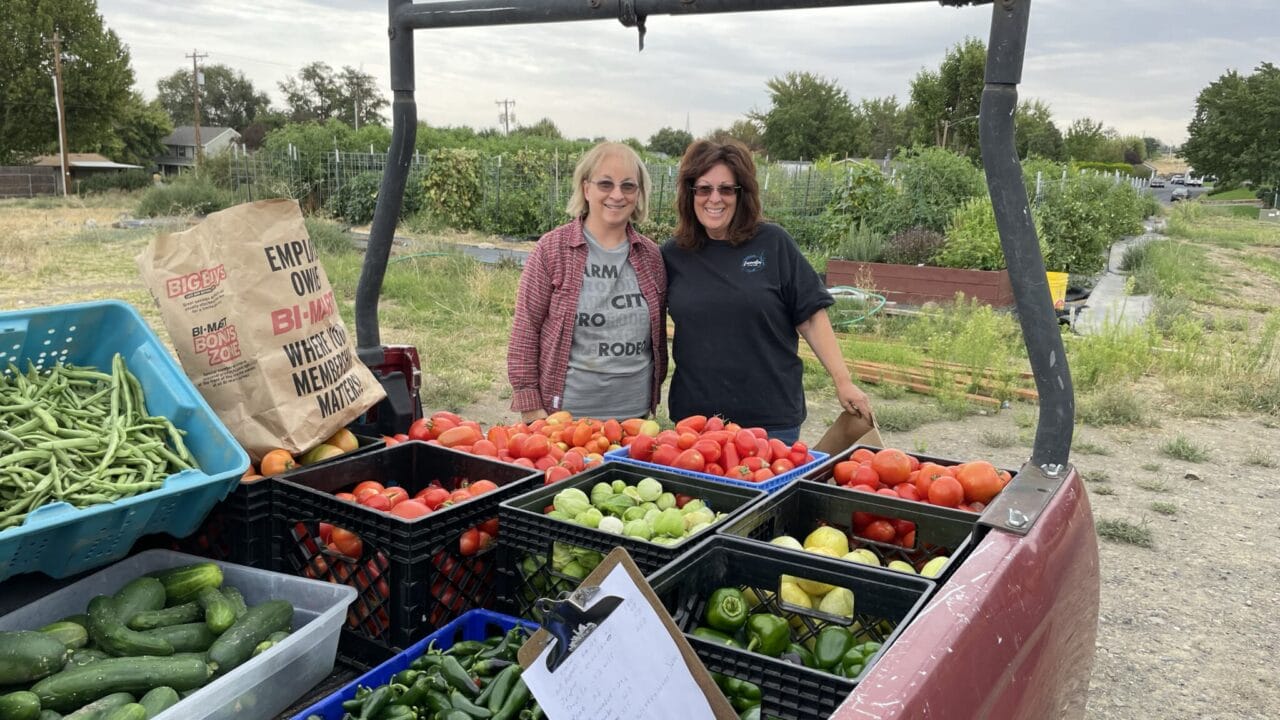
Pastoral Health & Formation Update
Subtítulos de vídeo disponibles en español
Caring for Ourselves to Care for Others: Making Space for Physical Health to Sustain a Life of Ministry
Physical health is often the last thing to get attention when our schedules are full. And they always are because in ministry, our lives are so geared towards putting out fires, and other things are always screaming louder."
Mitch & Lara Price | Life Church Vineyard, OH
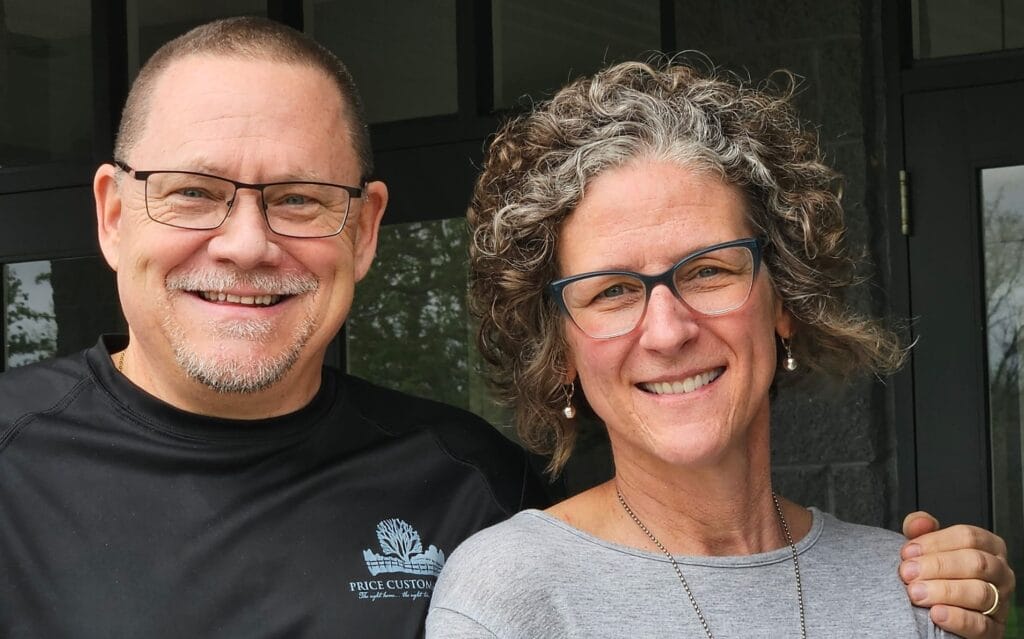
Caring for Ourselves to Care for Others: Making Space for Physical Health to Sustain a Life of Ministry
Mitch & Lara's Story
Life Church Vineyard
Mitch and Lara Price co-pastor Life Church Vineyard in Pleasantville, OH. They have been participating in the Vineyard USA Physical and Recreational Health Cohort since June of 2024, alongside 12 others.
Mitch says the cohort fulfilled his desire for a sustainable, holistic approach to health that goes beyond quick fixes and supports long-term care for his body. “Physical health is often the last thing to get attention when our schedules are full. And they always are because in ministry, our lives are so geared towards putting out fires, and other things are always screaming louder. For me, the first thing that always gets cut is my physical well-being, and it’s not obvious that you gain a pound here or there or that you’re not feeling your best. I’ve run a marathon and lost weight, but as soon as it was over, I quickly got out of the habit when life got busy again.”
Mitch has found the cohort structure to be incredibly valuable and said that it is well-crafted. “It’s a gathering of like-minded ministry people with a common goal of physical and recreational health. I just felt like I couldn’t, or wouldn’t, do it on my own. I needed resources, structure, encouragement, and support. Very quickly, I realized that’s exactly what I was getting: people who are doing this for the long haul. I’ve lost weight, but more importantly, I feel more fit and healthy. Our nutrition coach has taught me what food does to my body and how I can use it to fuel it or wreck it. It takes intentionality and planning.”
Mitch and Lara share a favorite component of the cohort curriculum: crafting a rule of life. “Crafting the rule of life means you carve out a schedule and make space for what’s important to you. Sunday morning is always coming, and certain things have to be done, so when push comes to shove and you’re running out of hours in a day, it’s easy to spend time on sermon prep rather than an hour and a half at the gym. So you schedule exercise like you’d schedule any other meeting, and you make it happen, implementing habits into a way of life that will be here forever, rather than ‘here today, gone tomorrow.’ The intentionality is important. ”
Lara says that she joined the cohort mainly as a support for Mitch, but has found it beneficial for her health and wellness. “I didn’t have an exercise routine, but I’m generally really active and an intuitive eater. But as I age, my body is changing, and I can benefit from strength training and toning. I’m also the primary cook, so it’s helpful for me to know how to support Mitch in his journey. It was good to go through this together.”
While the cohort participants meet regularly with a health and fitness coach who develops a personalized plan for each person, there is also a therapeutic element to the program. “It’s really trying to help you look at your whole life, not just fitness and nutrition, but how you deal with stress and relational conflicts, and how you interact with rest and sabbath. In terms of ministry, I think it’s foundational for anyone. Every part of your life needs to be well thought out, not just for personal health but also for ministry health.”
Lara says, “We can only give what we have to give, so if we’re not taking care of ourselves, we can’t care for others. We need to prioritize our own well-being in order to give our best to others and ensure longevity in ministry. But it also helps me remember that I’m a human being, not a human doing, and I can operate out of a place of stability and balance. Ministry can be very hard and demanding and I think it’s important to invest in yourself as you’re pouring out relational energy.”
Vineyard USA’s Integrated Physical & Recreation Health cohort is a nine-month program combining monthly cohort gatherings, bi-monthly personalized fitness and nutrition coaching, and monthly pastoral mentoring small groups to pursue a holistic approach to a pastors’ health and well-being. Mitch says, “There are quite a few meetings but I never felt overwhelmed by it. I always felt each one was very helpful.” Lara believes that the length of the program helped to develop relationships and really cement the habits. “There’s ongoing accountability, help, and resources alongside other pastors who have similar health goals. It’s great to build these relationships with other Vineyard pastors.”
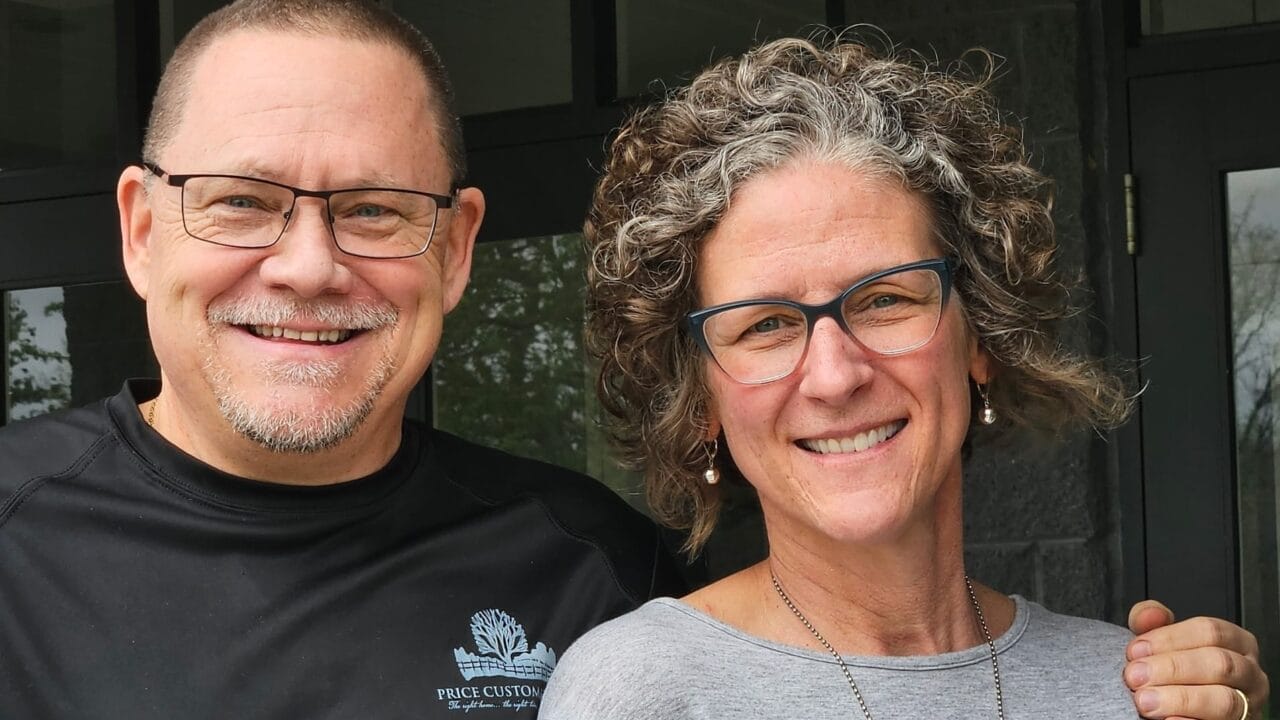
Church Health & Development Update
Subtítulos de vídeo disponibles en español
“Run With It”: Empowering New Leaders Within the Local Church
Vineyard Leadership Essentials (VLE) came at the perfect time for us because I was just starting to think about how we could develop leaders and incorporate them in different ways that we didn’t need before the growth."
Brett Kennedy | Vineyard Church of Wellsboro, PA
"Run With It": Empowering New Leaders Within the Local Church
Brett's Story
Vineyard Church of Wellsboro
Brett Kennedy has been the Lead Pastor of Vineyard Church of Wellsboro in PA for 10 years. Located in a rural town of 4,500 people, the church was started in 2001 in the founding pastors’ home. They rented spaces before acquiring their building in 2022. At that time, they had about eighty people, but in March 2025, it was closer to 225. This amount of growth in such a short period increased their need to develop new programming, which created a need to develop new leaders to run those programs.
Brett says that his church has always been known for their service to the community and proactively connecting with other local ministries to meet community needs. “We’re very involved in community partnerships, both in providing volunteers and fundraising.” Brett says their church fosters a culture where “everyone gets to play,” regardless of age, with a congregation made up fairly evenly of empty nesters, retirees, families, young adults, youth, and kids. “We try to provide opportunities for everyone to figure out what it looks like to follow Jesus and be His hands and feet outside the church walls.”
“While we had a process for discipling people, we really didn’t have a good process for discipling and developing leaders. Because we grew so quickly, we fell behind on that. Vineyard Leadership Essentials (VLE) came at the perfect time for us because I was just starting to think about how we could develop leaders and incorporate them in different ways that we didn’t need before the growth. I was doing a lot of work on what that could look like and how to implement it when I got an email about VLE, and it was like ‘TA-DA!’ They’d done it all for me!”
Brett says he immediately decided to participate in the pilot program and identified eight people in his church to join him. Each person he identified had demonstrated leadership potential but wasn’t currently serving in a leadership role. “I tried to have the demographics of our group match those of our church. We have three people under the age of 25, three from age 26 to 40, and three over the age of 40,” including Brett, who is also participating in the course. “I am a graduate of Vineyard Leadership Institute (VLI), so I was interested to see how this would be different, and I’ve been pleasantly surprised. This first year is about focusing on how to lead yourself. After pastoring for ten years now, I’ve realized that being able to minister to and lead yourself well, making sure you’re mentally, physically, and spiritually healthy enough to pour into others, is really important.”
Their group meets together twice a month to discuss the course material and pray for each other. Upon returning from a break in December, the group commented on how much they missed their time together, and Brett says that he feels this is a testament to the value of the course. The group also provided feedback that it has given them insight into ministry and what it means to lead people. “I came into ministry thinking it’s going to be awesome and we’re just going to share the Gospel and lead people to Jesus, and while that happens, there’s also hard stuff. Being rooted in Jesus so you can navigate the ups and downs is crucial. Some people in the group are new to our church and came from more rigid and legalistic traditions, and the perspective they are gaining that there’s no hierarchy in the Kingdom of God, there’s no ‘level’ at which you’re deemed worthy of leading and advancing the Kingdom, has been very freeing. They are realizing they don’t have to be a Bible scholar to lead in the Vineyard; they just have to give their talents and treasures to Jesus and let him fill the gaps. It empowers people, and I see that happening in my group.” Brett says that the group often shares ideas in their one-on-one meetings about how they might improve different areas of the church. “They are beginning to see where they’re skilled and gifted, and I can say, ‘Why don’t you try that? Run with it.’”
One participant spent some time in prison, where he found Jesus and got involved in Celebrate Recovery. “He started coming to the Vineyard, and Jesus told me, ‘Pay attention to this guy.’ We started meeting regularly and I found he had an amazing story of redemption and was really gifted. I invited him to join VLE, and he asked what he’d do with it. I said, ‘We’ll figure it out, that’s part of the process.’” Celebrate Recovery was a topic that kept coming up in their one-on-one meetings because this man felt it was foundational to the development of his faith. Since there aren’t similar programs in their area, the man asked Brett, “What do you think about us pursuing that?” Brett said, “I think you pursuing that is a great idea, and I’ll support you. Figure out what needs to be done, and we’ll put together a team to help you.” Brett says he walked the man through it, but didn’t do it for him. “Recently, he made an announcement for an interest meeting, and a dozen people showed up. He then had a meeting with a regional person to see what it looked like to get it going. He’s empowered to work in an area he’s passionate about, and for me, a job is getting done in our community, and my hands are off of it. I’m supporting and encouraging, and I’ll help where I need to, but it’s amazing to get the benefits of someone using their giftings and passions while I’m just providing oversight.”
Similarly, there’s another participant who’s interested in kids’ ministry, another area in their church that Brett feels they need to grow in. “I love that they’re learning how to lead and feeling empowered to use their skills, and immediately we can provide an opportunity to apply it within the real context of the church. I think that’s really what the program is about. Knowledge for the sake of knowledge is no good. It’s the first year, but there are already two people who are like ‘Can I run with this?’ and I’m like ‘You can run with this!’ My goal as a senior pastor is to see where their expertise fills a void in the church, and then provide leadership for it.”
As a participant, Brett spends five to six hours a month on VLE between coursework and group meetings. As a mentor, he spends seven to twelve hours per month on VLE, depending on individual meeting schedules with other participants. “If we do Foundations II in the Fall for existing participants alongside another Foundations I for new participants, I’m looking at which of the current participants could help mentor Foundations I. I also currently have participants take turns leading sessions and facilitating discussions with their peers, which gives them another opportunity to implement leadership skills and helps alleviate my schedule a bit.”
Brett says the time investment is well worth it. “I have a goal to start three site churches within our county in five years, and eventually to have a Vineyard in every town. I’m not looking for a bigger church, I’m looking for a bigger impact. A Vineyard in each community can impact their community in a much bigger way than one large church trying to reach five communities.” As their church looks at future growth and expanding partnerships with other local community organizations, they need well-developed, passionate leaders to help in each of these areas.
“What I love about VLE is that you have an outline and guidelines, but you’re given the freedom to implement it in a way that makes sense within your church’s context. We’re not a huge church, and human resources are always a challenge. The VLE team has made it so you don’t need a dozen staff members to make it happen. Kudos to them for creating it that way.”
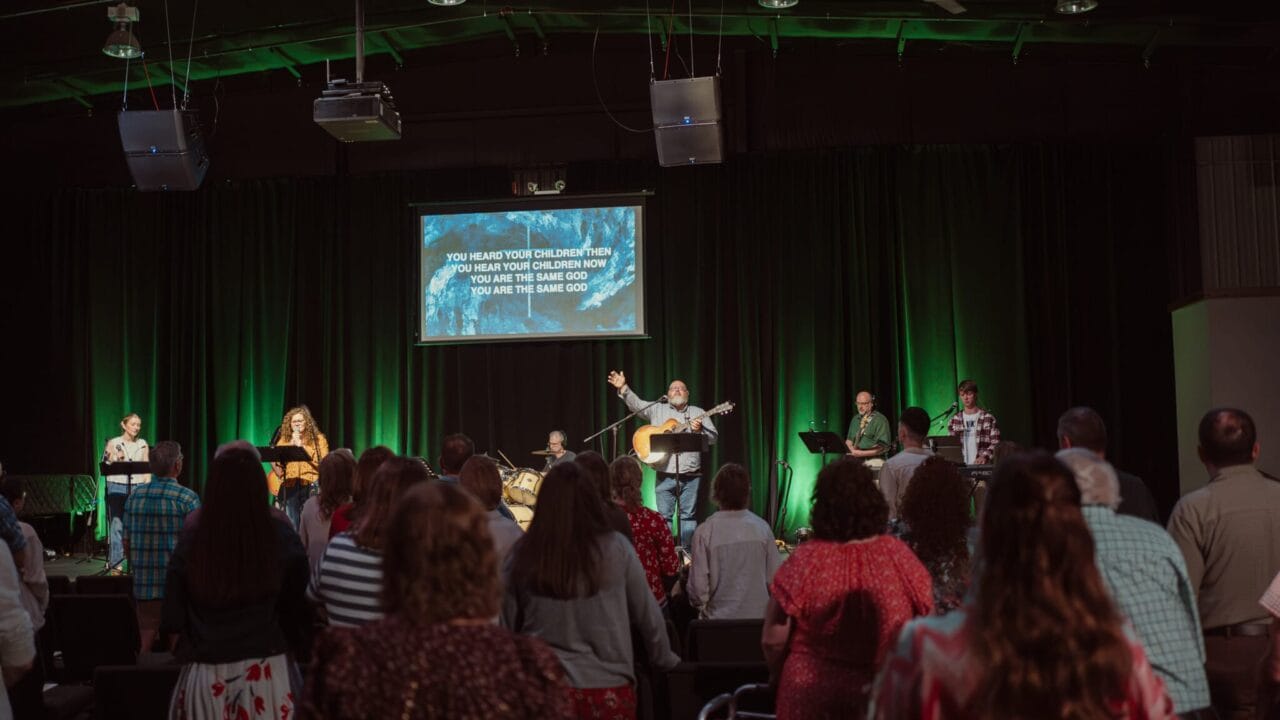
Associations Update
Subtítulos de vídeo disponibles en español
Subtítulos de vídeo disponibles en español
Influence and Events
Events Update
Subtítulos de vídeo disponibles en español

Theology & Education Update
Subtítulos de vídeo disponibles en español
Vineyard Worship
Subtítulos de vídeo disponibles en español
Into the Future
As we look back on all that God did through our churches in 2024, our hearts are filled with expectation for what He will do through us this year.
We’re hearing powerful stories from pastors and leaders across the country who are faithfully sharing Jesus in their cities, creating space for the Holy Spirit to move, and witnessing the Kingdom of God break through in extraordinary ways.
We hope this Annual Report gave you a glimpse into all that Jesus is doing through our churches and encouraged you to continue doing the good work of sharing Jesus with your communities.
We continue to pray that God will move in big ways as we plant and strengthen local churches that are marked by deep relationships and vibrant mission. We’re especially excited to gather together at our National Conference this summer, where we’ll pursue God’s presence, celebrate the culmination of our National ordination and bylaws process, and reflect on what it means to be a Vineyard Pastor.
May the Lord bless you richly as you seek His Kingdom right where you are. We’re so grateful to be on this journey with you!







